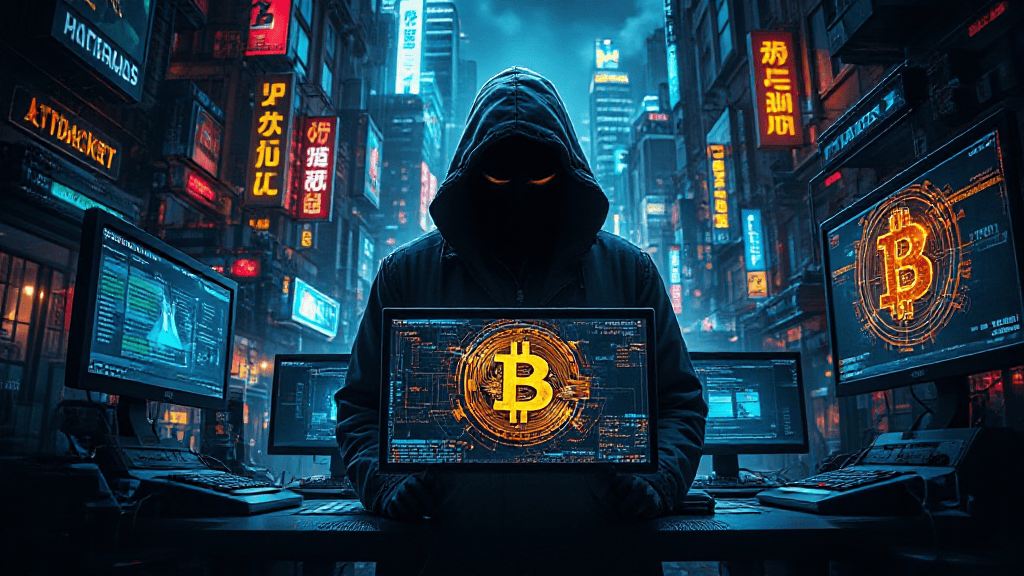The world of cryptocurrency is changing fast.
It offers new chances for people.
But with these changes, there are risks too.
Many bad people are trying to take advantage of digital currencies to make money in wrong ways.
Bitcoin, being the top cryptocurrency, is known for its anonymity.
This feature is what hackers like because it helps them stay hidden.
Key Highlights
- Bitcoin’s anonymity and decentralized nature make it a preferred tool for hackers to conduct ransomware attacks and other illegal activities.
- The lack of a central authority and the difficulty in tracing transactions make it challenging for law enforcement agencies to track down Bitcoin-related crimes.
- Hackers exploit vulnerabilities in Bitcoin wallets, employ sophisticated social engineering tactics, and target cryptocurrency exchanges to steal Bitcoin.
- The infamous Mt. Gox hack and recent high-profile heists highlight the significant financial losses associated with Bitcoin hacking.
- Individuals and organizations must adopt robust security measures, including using secure wallets, enabling multi-factor authentication, and staying informed about potential threats.
The Attraction of Bitcoin for Hackers

Bitcoin attracts hackers for more than just its money value.
It is a treasure for those who want to take advantage of the hidden parts of the internet.
But why does this happen?
The answer is in how Bitcoin works.
Bitcoin transactions are anonymous.
That means it’s hard to see who is involved.
This makes Bitcoin very attractive for money laundering, where hiding where dirty money comes from is important.
Additionally, the growth of ransomware attacks makes things worse.
Often, hackers ask for Bitcoin as payment.
Anonymity Features that Benefit Malicious Activities
One important feature of Bitcoin is its use of public ledgers.
These ledgers keep track of every transaction on the network.
They are clear and open, but they do not show personal information, which gives users a degree of anonymity.
However, this pseudonymous aspect can be risky.
Hackers take advantage of this way of working.
They can commit illegal acts with less chance of being caught.
In contrast to regular banking, which needs personal details, Bitcoin uses unique alphanumeric addresses for transactions.
This distance between real identities and Bitcoin actions creates a space for bad actors.
They can work without revealing sensitive information.
This makes it hard to follow their activities.
Ease of Laundering Money through Cryptocurrency
Bitcoin’s structure is decentralized.
This makes it hard to follow where the money goes.
Because of this, it is often used for laundering money gained from illegal activities.
Without a central authority like a bank, Bitcoin users can send money directly to each other.
This is good for honest users, but it also helps criminals move money quickly and easily across borders without much control.
Hackers can make it even harder to trace the money.
They can use cryptocurrency exchanges to change Bitcoin into other cryptocurrencies or regular money.
This creates a confusing network of transactions that hides where their illegal money comes from.
Understanding How Hackers Exploit Bitcoin Networks
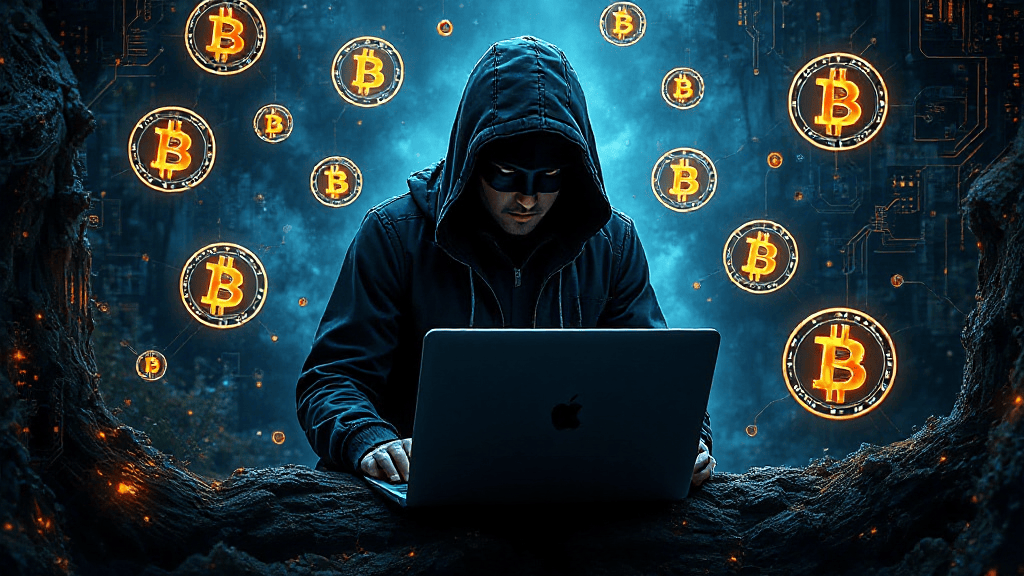
Understanding how hackers exploit Bitcoin networks is very important.
It helps improve security measures and creates a safer environment for everyone.
Their methods are not just about technical skills.
Hackers use many ways to break into Bitcoin wallets and find security weaknesses.
They often trick people with well-planned social engineering tactics to succeed.
Techniques Used to Breach Bitcoin Wallets
Compromising private keys is a major goal for hackers who want to get into Bitcoin wallets without permission.
Private keys act like digital signatures that approve Bitcoin transactions.
Phishing attacks are a common method that tricks people into giving away their private keys through fake emails, websites, or messages.
These often look like they’re from real services or individuals.
Once a hacker has a private key, they can take full control of the wallet and its money.
Also, weak security measures for cold storage wallets can make them vulnerable to hackers.
Cold storage is safer because it’s offline, but any mistake in security during setup or when accessing can lead to serious problems.
The Role of Social Engineering in Cryptocurrency Theft
Beyond technical skills, social engineering tricks are often used to take advantage of human weaknesses.
These tricks trick people into giving up their Bitcoin.
Cybersecurity problems often come from human mistakes.
Hackers know this and use social engineering to trick people into allowing access to their money.
These attacks can happen in many ways.
They can involve phishing emails that look like they are from real services.
They can also be complex plans that take advantage of trust and urgency.
For example, an attacker might create a false crisis that makes the victim feel they must act fast.
This could mean moving Bitcoin to a fake address to avoid losing it.
These scams show how important it is to be aware of cybersecurity.
It’s vital to check information before doing anything with digital assets.
Case Studies of Notable Bitcoin Heists

The history of Bitcoin has some serious issues, mainly due to major thefts.
These thefts show how easy it can be for hackers to take advantage of digital currency.
They remind us that attackers keep changing their methods, which highlights the need for strong security.
One major case was the Mt.
Gox hack.
It shocked the cryptocurrency industry.
Since then, there have been other thefts using smart tactics that focus on cryptocurrency exchanges.
This shows that cybercriminals are always coming up with new ways to attack.
We must stay alert and update our security measures to handle these ongoing threats.
The Infamous Mt. Gox Hack and its Impact on Bitcoin
The 2014 Mt.
Gox hack was a major event in Bitcoin’s history.
It showed the weak spots in the cryptocurrency industry and the harmful effects of cybercrime.
At that time, Mt.
Gox was the largest Bitcoin exchange in the world.
It handled a big part of all Bitcoin transactions.
The hack led to the loss of about 850,000 Bitcoins, which were worth hundreds of millions of dollars back then.
This incident shocked the cryptocurrency world and made people lose trust in digital currencies.
Regulators started to pay more attention to the situation.
The Mt.
Gox hack revealed the poor security measures and lack of oversight in the young cryptocurrency industry.
It showed how centralized exchanges, which held a lot of cryptocurrency, could be targeted by cyber criminals.
These criminals looked for ways to exploit vulnerabilities and steal large amounts of digital assets.
This event hurt market liquidity and trust in the whole Bitcoin system.
Recent Major Bitcoin Thefts and Their Techniques
Recent years have seen a rise in Bitcoin thefts.
Hackers are getting smarter at finding weaknesses in cryptocurrency platforms.
They use complex methods to carry out these attacks.
Smart contracts have also become a big target.
This is because errors in their coding can be taken advantage of by attackers.
In 2022, the Ronin Network was part of a big cryptocurrency theft.
This blockchain project is related to the popular game Axie Infinity.
Hackers found a flaw in the network’s bridge, which is a tool that helps move tokens between different blockchains.
They stole over $600 million worth of cryptocurrency.
|
Bitcoin Heist |
Year |
Technique |
Worth of Cryptocurrency Stolen |
|---|---|---|---|
|
Mt. Gox Hack |
2014 |
Exchange Hack |
~$450 Million |
|
Coincheck Hack |
2018 |
Exchange Hack |
~$530 Million |
|
Binance Hack |
2019 |
Exchange Hack |
~$40 Million |
|
KuCoin Hack |
2020 |
Exchange Hack |
~$281 Million |
|
Ronin Network Hack |
2022 |
Bridge Exploit |
~$620 Million |
These events show that as more people use Bitcoin and its value rises, the skills of cyber criminals also improve.
Preventative Measures Against Bitcoin Hacking
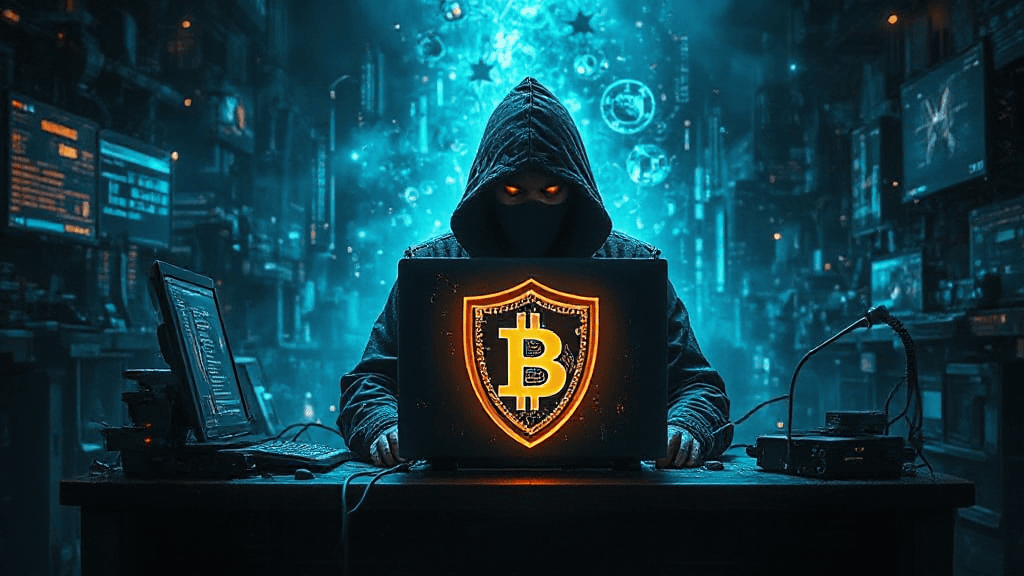
The battle against Bitcoin hacking needs several solutions.
Only trusting the built-in security features of Bitcoin is not enough.
Both people and organizations should take active steps and follow best practices.
This will help keep their Bitcoin safe from clever and determined hackers.
Best Practices for Securing Bitcoin Wallets
Securing your Bitcoin wallet means using strong security measures to protect your private keys.
This will help reduce the chance of someone getting in without permission.
The first step is to pick the right type of wallet for your needs.
A hot wallet is always online.
It makes quick transactions easy, but it has higher security risks.
A cold storage wallet keeps your private keys offline, which makes it safer.
This type of wallet is a good choice if you hold a lot of Bitcoin.
No matter which wallet you pick, using best practices is very important.
Always use strong and unique passwords.
Turn on two-factor authentication whenever it is available.
Be careful of phishing attacks.
These can trick you into giving away your private keys.
The Importance of Multi-Factor Authentication
To keep your digital assets safe, especially Bitcoin, good security is very important today.
One way to protect your online accounts is by using multi-factor authentication (MFA).
MFA provides an extra level of security beyond just a username and password.
Even if someone gets your password, MFA acts as a backup.
It requires another way to verify your identity, like a code sent to your phone or a fingerprint scan.
Setting up MFA is easy, and many online services, like cryptocurrency exchanges, provide this feature.
By using MFA, you lower the chances of someone getting into your accounts.
It makes it much harder for malicious actors to access your digital assets.
Always remember that keeping your account secure is an ongoing process.
Conclusion
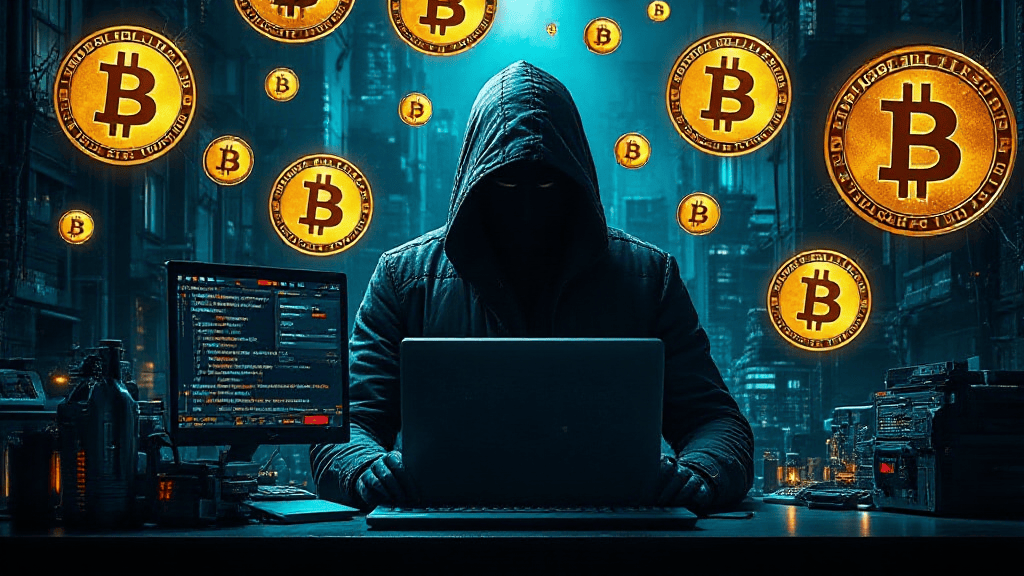
Bitcoin is attractive to hackers because it allows them to stay anonymous and makes money laundering easy.
To understand how hackers take advantage of Bitcoin networks, we need to look at what they do.
This includes breaking into wallets and using social engineering tactics.
Some famous thefts, like the Mt.
Gox hack, show us the weaknesses in the system.
To protect ourselves, it’s important to secure our wallets and set up multi-factor authentication.
Being alert against Bitcoin hacking is essential in our digital world.
We must keep our assets safe from malicious actors.
Always stay informed and take active steps to safeguard your cryptocurrency.
Join the movement in cybersecurity and make sure you protect what is rightfully yours.
Frequently Asked Questions
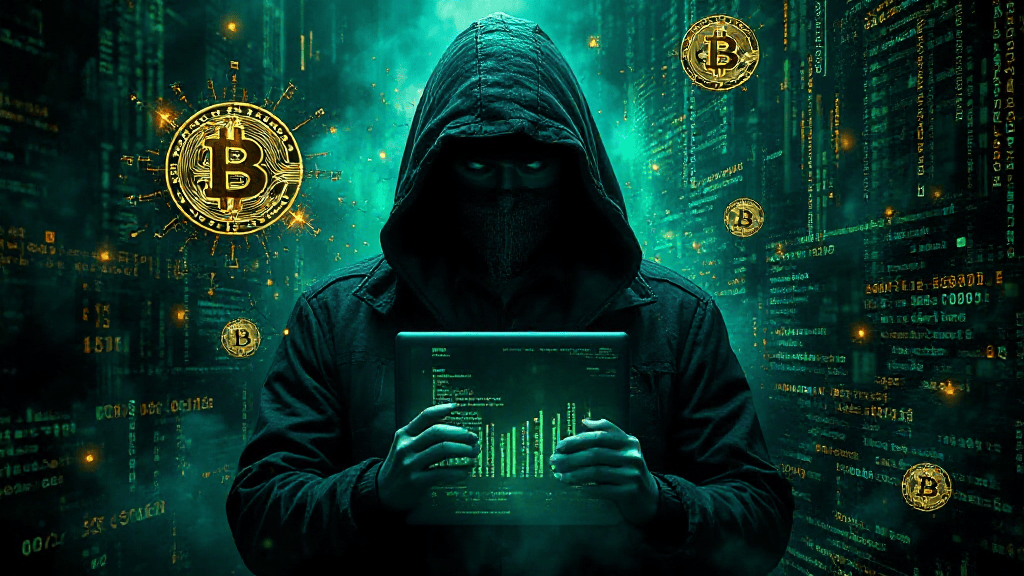
Why is Bitcoin a preferred currency for hackers?
Bitcoin’s decentralized system and the anonymity it offers attract crypto hackers.
Its rapid growth and popularity increase its use for illegal activities.
Can stolen Bitcoins be traced back to the thief?
Stolen Bitcoins can be hard to trace, but it is possible.
Law enforcement can use blockchain analysis to follow the transaction trail.
They look at public ledgers to help increase the chances of finding the thief.
How can individuals protect their Bitcoin from theft?
Individuals need to focus on safe storage options, such as hardware wallets.
They should also follow good cybersecurity habits.
Keeping a close watch on transactions is important.
You should be aware of scams to protect your Bitcoin.
Are there legal consequences for Bitcoin hacking in the United States?
Law enforcement agencies work hard to catch Bitcoin hackers.
In the United States, cyber law has strict rules for people who steal digital currency.
They can face heavy fines and even go to prison for their actions.
